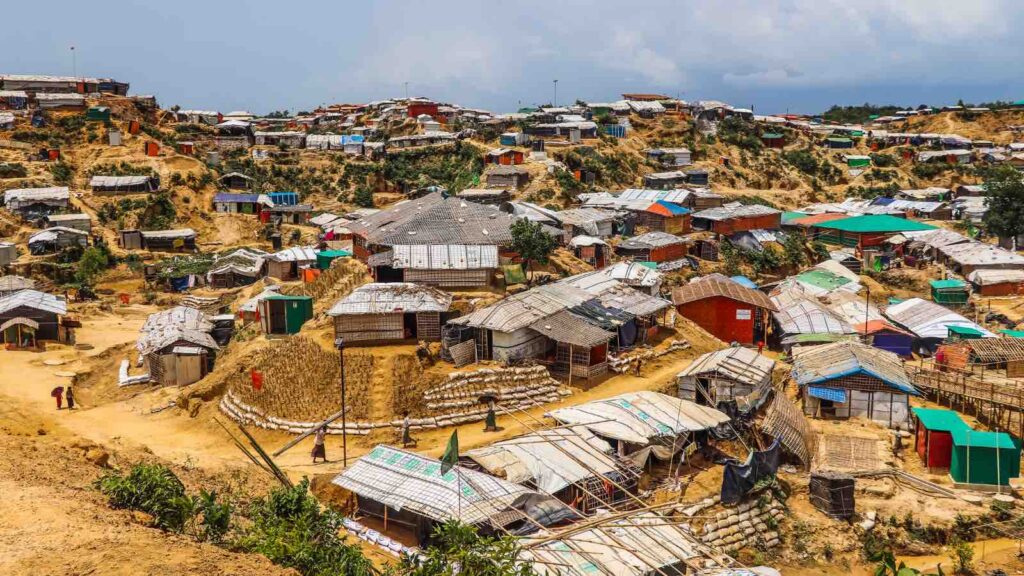For the Rohingya refugees in overcrowded camps, survival has become increasingly difficult as food rations dwindle. With WFP facing funding shortfalls, the monthly food assistance per person has been slashed to just $8, barely enough to meet basic nutritional needs
Bangladesh, already burdened by significant poverty, is grappling with the added strain of hosting over a million Rohingya refugees. As global crises like the COVID-19 pandemic, the war in Ukraine, and the conflict in Palestine take center stage, the Rohingya refugee crisis in Bangladesh is slipping from international attention. This shift in focus is exacerbating an already precarious situation, leaving the refugees and local communities struggling to survive with diminished resources and declining international aid.
RELEVANT SUSTAINABLE GOALS
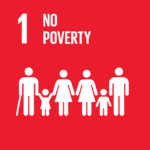
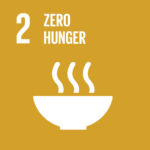
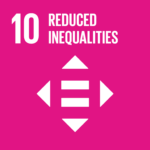
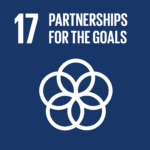
Strained Resources and Dwindling Support
Bangladesh’s economic situation has worsened in recent years due to the pandemic and Russia’s war in Ukraine. Inflation has surged, with food prices reaching a 12-year high, severely impacting the cost of living for ordinary citizens. The Bangladeshi taka has depreciated by 30% against the U.S. dollar over the past two years, compounding the economic strain.
The country’s status as one of the largest food importers globally makes it particularly vulnerable to rising food costs and declining foreign currency reserves. The influx of Rohingya refugees, who fled violence in Myanmar, has added immense pressure on already stretched resources. Both refugee and local communities are suffering from heightened demand for food, shelter, and basic services.
The United Nations World Food Programme (WFP) has been forced to cut food rations for the Rohingya due to funding shortages. This reduction is not only affecting the refugees, who are almost entirely dependent on international aid, but also deepening poverty and food insecurity in local Bangladeshi communities.
Surviving Amid Food Ration Cuts
For the Rohingya refugees in overcrowded camps, survival has become increasingly difficult as food rations dwindle. With WFP facing funding shortfalls, the monthly food assistance per person has been slashed to just $8, barely enough to meet basic nutritional needs.
The consequences are dire. Refugees, already contending with inadequate access to clean water, limited medical services, and cramped living conditions, are now struggling to secure even one meal a day. These cuts have worsened an already grim reality for the Rohingya, whose reliance on international aid has never been more critical.
Novo Jibon: A Lifeline for Refugees and Rural Communities
Novo Jibon—New Life Charity Trust—has been at the forefront of efforts to support Rohingya refugees and impoverished Bangladeshi communities since 1998. The grassroots organization has been deeply affected by the reduction in aid, forcing it to make difficult decisions about which programs to cut or scale back. “The reduction in international aid has been devastating,” said Hasan Abdullah, Head of Marketing, Fundraising, and Communications at Novo Jibon. “We’ve had to prioritize food distribution while scaling back on medical care and education.”
In response to declining aid, Novo Jibon has focused on sustainable, community-driven projects aimed at empowering refugees and local residents. These include income-generating initiatives like sewing cooperatives and agricultural plots, which help refugees become more self-reliant and reduce their dependence on dwindling international assistance.
However, political and logistical challenges often hinder the expansion of these sustainable solutions, limiting their potential impact. Abdullah noted that the organization remains committed to its mission but acknowledges that more support is needed to meet the growing demands of both the refugee and local populations.
Novo Jibon’s efforts extend beyond the refugee camps to rural Bangladesh, where poverty is also entrenched. The organization works holistically, addressing similar challenges faced by both communities, such as limited access to clean water, education, and health care.
By integrating their efforts, Novo Jibon maximizes resources to benefit both rural Bangladeshi residents and Rohingya refugees. For example, water and sanitation projects in rural areas have been expanded to include the refugee camps, ensuring access to essential services for both populations.
The Urgent Need for Continued Support
As global attention shifts to other crises, fundraising for the Rohingya refugees has become increasingly difficult. Abdullah explained that the COVID-19 pandemic, the war in Ukraine, and the ongoing conflict in Palestine have diverted attention and resources away from the Rohingya crisis. Despite these challenges, Novo Jibon remains dedicated to building sustainable projects that can continue even if international support dwindles further.
“We are working on building sustainable, community-driven projects that can continue even if international support dwindles further,” Abdullah said. However, the challenges of sustaining these efforts without sufficient international aid are immense, and both refugees and local communities face an uncertain future.
The declining aid for Rohingya refugees in Bangladesh underscores the global community’s waning attention to one of the world’s most vulnerable populations. Without renewed international focus and funding, both the refugees and the local Bangladeshi communities will continue to face deepening crises.
Lead image courtesy of Falgoonee Kumar from Getty Images (Rohingya Camp Cox’s Bazar)
You may also be interested in :
Climate Disasters Surge, Early Warning Systems Become Essential


